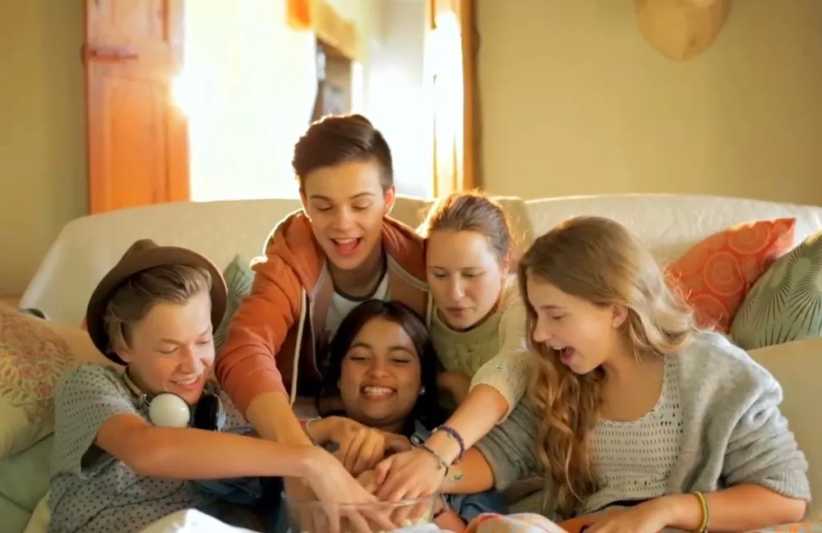Dear teacher,
At my eighth-grader’s school, the students have the opportunity to take a test called ReadiStep next month. It’s related to the SAT in some way. Exactly what is this test, and what are the advantages of taking it?
Dear parent,
You are right about the ReadiStep test being related to the SAT. It is the first step in the College Board’s Readiness Pathway System, which is designed to measure students’ readiness from the eighth through 12th grades for college and careers. The next step is the PSAT, and the final step is the SAT.
ReadiStep is typically offered in eighth or ninth grade, and individual students can only take this test if it is offered by their school. If the test is not given at a school, parents and students can ask the school’s administration about offering it. There is a fee of $8 for each answer sheet scored to defray the cost of administering it.
The main advantage of taking ReadiStep is that it helps students and their families understand the strength of their critical reading, math, and writing skills, as well as the skills they may need to work on as they transition to high school. Plus, schools are able to use the test to identify those who are ready for more advanced work, such as AP courses, and those in need of remediation.
About four weeks after the test, the results are available. At that time, students can review their results with a teacher or other school staff. They also can talk about the types of courses they should take in high school to prepare themselves for college and career goals.
You can find out more about ReadiStep on the College Board’s website at readistep.collegeboard.org/students-parents.
The must-dos for true parental involvement
Dear teacher,
I know that parental involvement is closely related to my children’s success in school. What else do I need to do beyond attending parent-teacher meetings and volunteering in their classrooms?
Dear parent,
Being involved in your children’s education does not take any special skills. What it takes is time, attention, and common sense. Here are some basic ways you can and should be involved:
• Read notes and newsletters from the school.
• Talk with your children’s teachers regularly.
• Keep up with the homework your children are doing.
• Read and discuss work your children bring home with them.
• Read aloud to your children, and encourage them to read.
• Set high standards for your child.
• Create a climate for learning in your home.
Helping children find friends in a new city
Dear teacher,
We have just moved to a new city where my son, a fifth-grader, goes to a private school. Unfortunately, none of the kids in his class live close by. How can I help him find after-school playmates in our neighborhood?
Dear parent,
Most children in your son’s situation will find friends in three places: organized groups, such as scouts; classes, from swimming to karate to art; and team sports.
You can find the scouting activities in your neighborhood by calling the scouting district office. If your son has an interest in learning a particular skill, your local parenting magazine or a neighbor can provide leads to classes that might interest him. As far as finding sports teams goes, this can be a bit more difficult. Sports teams are typically sponsored by communities or local organizations. A neighbor with a child your son’s age or even an older child should be a good resource for finding out what is available locally.
Finally, go out and meet your neighbors. They will know of other children who live close by.
Keeping track of children’s progress at school
Dear teacher,
What is the best way to keep on top of how my kids in elementary school are doing?
Dear parent,
First of all, report cards will quickly clarify whether your children are acing their schoolwork, sliding by, or encountering great difficulty. Beyond this, study the work that they bring home.
If their papers are bleeding with red marks almost every day, it is time for a chat with their teachers. Parents also can see the progress their younger children are making by dividing their papers by subject areas. Then they can look over the papers every few weeks and see if their children are truly mastering the current work. A child may start out making a lot of errors when a new concept is introduced and then gradually show that he is understanding it.
In this electronic age, it has become easier and easier for parents to know what is happening in their children’s classes. In many schools, teachers use the school’s web pages to detail exactly what is being studied in their classes. And in many schools, teachers put homework assignments, class participation points, and quiz and test scores online.
Parents should send questions and comments to dearteacher@dearteacher.com or ask them on the columnists’ website at www.dearteacher.com.
© 2014 Compass Syndicate Corporation
Distributed by King Features Syndicate













